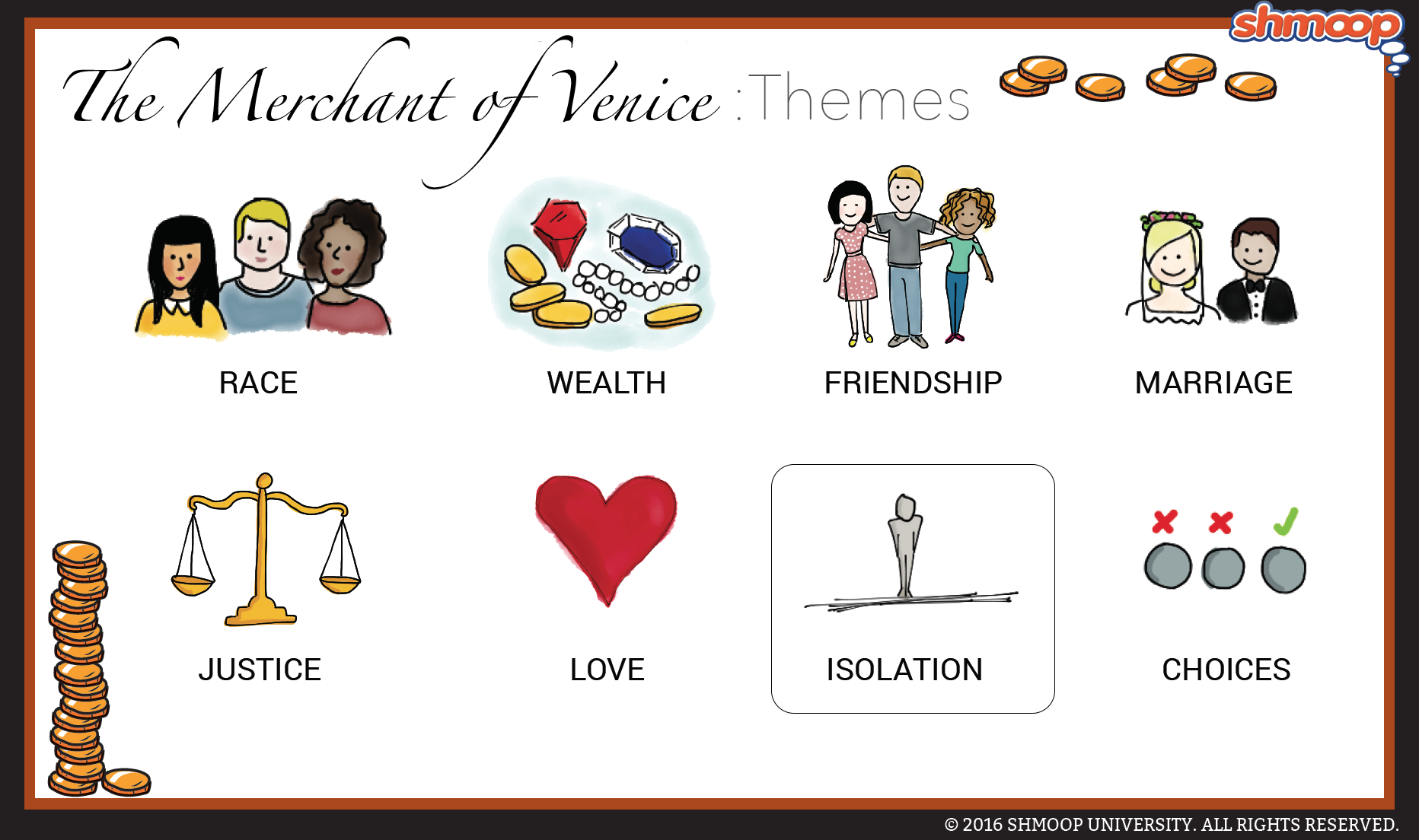 (Click the themes infographic to download.)
(Click the themes infographic to download.)
The Merchant of Venice is no puppy pile or cuddle puddle: it's riddled with characters who feel a deep sense of isolation. The characters clash on a variety of levels, as they come from different backgrounds and life situations and have different points of view.
The most potent isolation is caused by religious estrangement. Shylock is isolated because he is Jewish—his religious beliefs and cultural values remain fundamentally at odds with those of his fellow Venetians. Antonio is isolated by his relationship with Bassanio; their interaction seems to be defined and limited by what could be romantic love on Antonio's part. Isolation is a fact of life for the characters, and it proves to be fairly insurmountable.
Questions About Isolation
- To what degree is isolation self-imposed in the play? Do characters more often choose isolation or have it thrust upon them?
- What types of isolation are there in the play?
- How does isolation function in the play? Does it inspire characters to cooperate or rebel? How?
- Is Antonio isolated?
- How does Antonio's relationship with Bassanio function in terms of isolation? Is either man isolated with respect to the other?
- Jessica straddles two worlds in the play. Is she isolated from both? From either? Does she choose one side? What evidence do we have that she is comfortable or uncomfortable with her decision, if she makes one?
Chew on This
Even though Shylock has some friends (like Tubal) he's isolated from most of the characters in the play, even his own daughter.
Bassanio is the only character who is not isolated in the play. He stays friends with his friends and is never as much of an enemy to Shylock as the others are. Bassanio avoids isolation by being relatively innocuous.